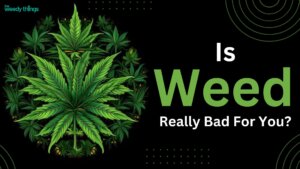The amendment aims to address concerns over the proliferation of marijuana-related content on social media platforms. Proponents argue that stricter regulations are necessary to prevent underage exposure and promote responsible consumption. However, critics question the effectiveness of such measures, citing issues of censorship and freedom of speech.
One of the primary concerns is the potential impact on businesses operating within the cannabis industry. Many companies rely on social media platforms to market their products and engage with customers. A ban on marijuana-related posts could severely limit their ability to reach their target audience and grow their business. Moreover, it raises questions about the unequal treatment of cannabis compared to other regulated substances.
However, the prospect of legalizing psychedelics raises significant concerns and challenges. Unlike marijuana, which has been extensively studied and regulated, psychedelics remain largely uncharted territory in terms of their long-term effects and potential risks. Critics worry about the unintended consequences of widespread legalization, including increased substance abuse and public safety concerns.
Furthermore, there are legal and regulatory hurdles to overcome before psychedelics can be legalized for medical or recreational use. Colorado’s current drug laws classify psychedelics as controlled substances, subject to strict regulations and penalties. Any changes to these laws would require careful consideration and deliberation by lawmakers, as well as input from medical professionals, researchers, and the public.
In addition to psychedelics, there are lingering questions about the regulation of other drugs in Colorado. While marijuana has been legalized for both medical and recreational use, substances like cocaine, heroin, and methamphetamine remain illegal and highly regulated. The prevalence of these drugs in certain communities has prompted calls for a reevaluation of drug policy and a shift towards a more comprehensive approach to substance abuse.
At the heart of these discussions is the recognition that drug policy is not a one-size-fits-all solution. Colorado’s approach to cannabis legalization has been hailed as a model for other states to follow, but it also serves as a reminder of the complexities and challenges inherent in regulating drugs. As the state continues to grapple with these issues, it must strike a balance between public health, safety, and individual liberties.
Frequently Asked Questions
The Amendment aims to address concerns over restrictions on marijuana-related social media posts, likely related to advertising or promotion.
The specific changes would need to be detailed within the Amendment’s language, likely providing clarity or modifications to existing regulations on cannabis advertising or promotion on social media platforms.
The queries likely pertain to potential regulatory frameworks, decriminalization efforts, or medical research surrounding psychedelics and other drugs beyond marijuana.
Concerns may include issues of free speech, marketing restrictions for legal marijuana businesses, or the effectiveness of such bans in preventing underage exposure to cannabis content.
The Amendment could introduce clearer guidelines or exemptions for certain types of social media content related to marijuana, balancing regulatory objectives with free speech considerations.




